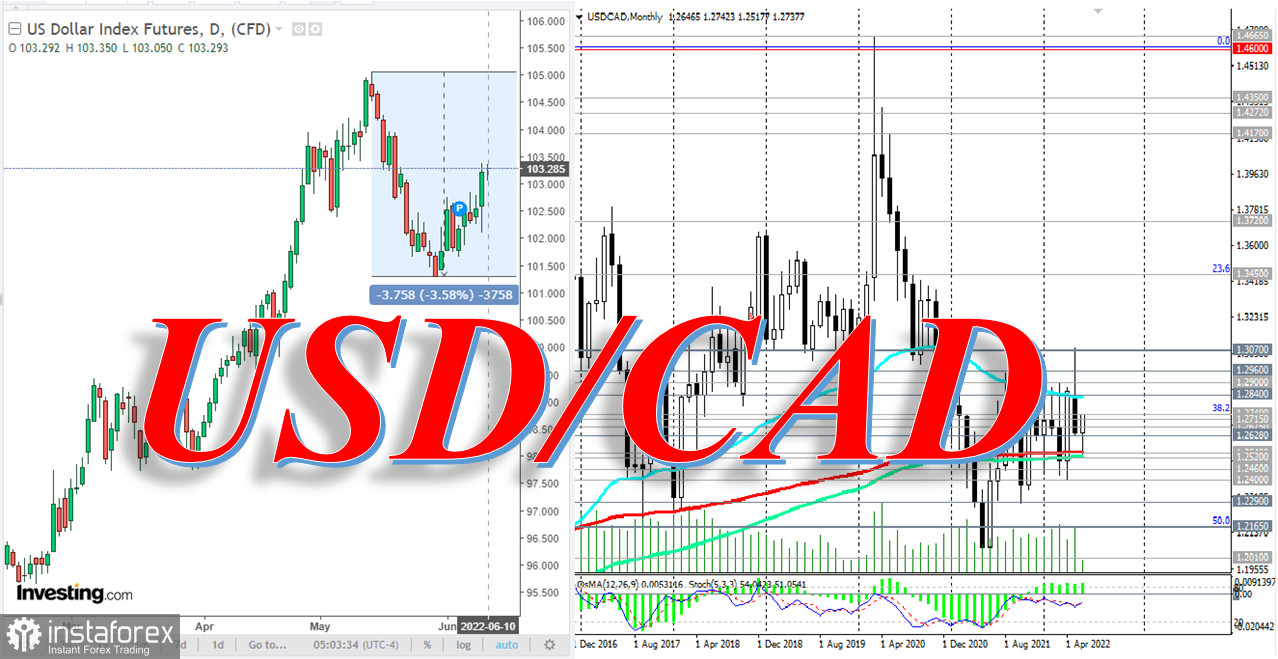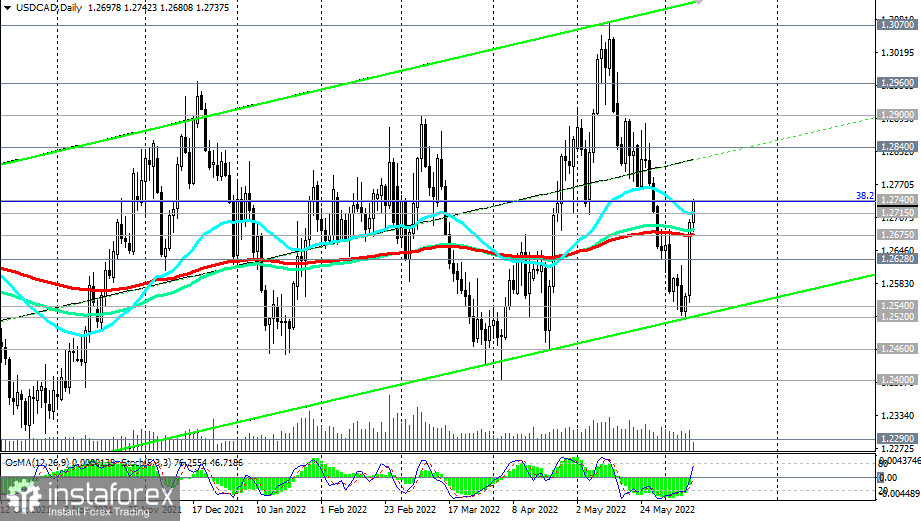The result of yesterday's very volatile trading day was the strengthening of the dollar and the growth of the dollar index (DXY)—it rose by 68 points to the closing price of the previous trading day, to 103.21.

Today, market participants are waiting for the publication (at 12:30 GMT) of updated inflation data in the US. Consumer inflation in May is expected to rise by 0.7% and remain at the level of 8.3% in annual terms, which indicates its still high level (the highs for the past 40 years). If the data turns out to be weaker than the forecast, then the dollar is likely to react with a short-term decline. Data better than the forecast will strengthen the dollar.
Also at the same time (at 12:30 GMT), Statistics Canada will publish data on the country's labor market for May, and at 14:00 the University of Michigan Consumer Confidence Index (preliminary release) will be published, reflecting the confidence of American consumers in the economic development of the country. A high level indicates growth in the economy, while a low level indicates stagnation. The data for previous periods testify to the uneven recovery of this indicator, which is negative for the USD. Data worse than previous values may have a negative impact on the dollar in the short term. The forecast for June is 58.0.
As for the Canadian dollar, it may react very sensitively to the publication of data from the national labor market. Unemployment has risen in Canada in the previous two years, including against the backdrop of massive business closures due to the coronavirus and layoffs. Unemployment rose from the usual 5.6%, 5.7%, to 7.8% in March and already to 13.7% in May 2020. If unemployment continues to rise, the Canadian dollar will decline. Decreasing unemployment rate is a positive factor for CAD, rising unemployment is a negative factor. In April 2022, unemployment was at 5.2% (against 5.3%, 5.5%, 6.5% in previous months). The forecast for May 2022 is 5.2%. If the data turns out to be better than the forecast, the Canadian dollar will strengthen.
Thus, during the period from 12:30 to 14:00 (GMT), a significant increase in volatility is expected in the USD, CAD quotes, and accordingly, in the USD/CAD pair.
At a meeting earlier this month, the Bank of Canada raised its interest rate by 0.50% to 1.50%. An accompanying statement said the bank was ready to "act more decisively if necessary" to meet its 2.0% inflation target amid increased risk that inflation could gain a foothold at elevated levels. The Bank of Canada also said it continues to believe that interest rates will need to rise further as economic activity in the country is strong, the economy is operating in excess demand, and activity in the Canadian housing market remains at high levels. The Bank of Canada said it plans to continue its quantitative tightening policy.
This is a strong bullish factor for the CAD as strong macro data continues to come out of the country and oil prices, one of Canada's main exports, continue to rise.

If the Canadian labor market data expected today also turns out to be strong, then the Canadian dollar, which is currently declining against the US dollar, may receive additional support, and the direction of the USD/CAD pair may change from "up" to "down" again. How long will this decline last? Here, much will depend on the US dollar, which so far sets the general tone in the foreign exchange market. But a short-term decline in USD/CAD after 12:30 (GMT) is also possible today: the price is trying to break through the zone of strong resistance levels 1.2675, 1.2715, 1.2740.





















